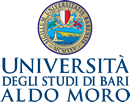Safety and immigration: the problem of immigration and the European union
Abstract
This article deals with the question of how migration has developed into a security issue in Europe and how the European integration process is implicated in it. Since the 1980s, the political construction of migration increasingly referred to the destabilizing effects of migration on domestic integration and to the dangers for public order it implied. The spillover of the internal market into a European internal security question mirrors these domestic developments at the European level. The Third Pillar on Justice and Home Affairs, the Schengen Agreements, and the Dublin Convention most visibly indicate that the European integration process is implicated in the development of a restrictive migration policy and the social construction of migration into a security question. However, the political process of connecting migration to criminal and terrorist abuses of the internal market does not take place in isolation. It is related to a wider politicization in which immigrants and asylum-seekers are portrayed as a challenge to the protection of national identity and welfare provisions. Moreover, supporting the political construction of migration as a security issue impinges on and is embedded in the politics of belonging in western Europe. It is an integral part of the wider technocratic and political process in which professional agencies – such as the police and customs – and political agents – such as socialmovements and political parties – debate and decide the criteria for legitimate membership of west European societies.
Immigration rank high in the public debate in EU countries. Participants in this debate often have different opinions on the subject. On the one hand, supporters of more liberal attitudes towards immigration – many economists are among them – propose some solid arguments why the EU needs more immigrants. One such argument is related to the ageing of the European population, which implies that pension systems are coming under strain. In this context, immigrant inflows are beneficial because they may slow the pace of ageing and consequently relax tensions in the pension system. Another pro-immigration argument refers to the low geographical mobility of European workers within the EU. A consequence of the latter is that migrants play a crucial role as a stabilizer after asymmetric shocks by moving into areas where labour is scarce. On the other hand, many European countries experience high levels of anti-immigrant opinions. The complexity of migration requires a global approach to policies. First, the several externalities at work ask for a high level of coordination among EU member states. There is therefore a need for coordination among EU member states for policies related to irregular immigration. The European Pact on Immigration underlines the importance of strengthening cooperation with countries of origin and transit on a number of fronts, including managing migrant inflows, fighting against the trading of human beings and against international criminal networks. Second, a global approach requires an in-depth analysis of all the factors determining migration, as Brady (2008) suggests. Helping immigrants’ origin countries in alleviating problems of political instability, poverty or high unemployment through official development assistance or reducing barriers to trade are some examples of policies dealing with “push” factors, i.e. the reasons why migrants want to move out of certain countries. Immigration policies should also take into account the factors that attract migrants into the destination country, i.e. the pull factors. An example of such factors is the labor market condition in host countries. According to the above-mentioned pact, it is the responsibility of each EU country to decide on the number of persons it wishes to admit and this should be done according to its individual labor requirements. In addition to the fostering of cooperation both among member states and between the EU and migrant’s countries of origin, two of the main arguments at the center of the debate on European immigration policy are the EU willingness of attracting more qualified immigrant workers and of reducing the number of undocumented immigrants.
Parole chiave
Full Text
PDFDOI: https://doi.org/10.15162/2612-6583/1080
Refback
- Non ci sono refbacks, per ora.
E-ISSN: 2612-6583
Codice ANCE: E251746 eurobalkan.review@uniba.it

